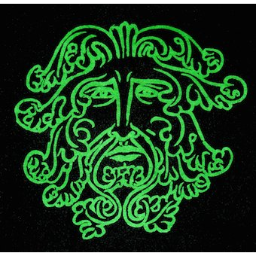One of the great unexpected pleasures of working with David Taylor on the Green History project (www.green-history.uk) is the discovery and re-discovery of many books published between 1970 and 1990 covering various aspects of "green-ness". Also of course there is lots of older key source material to be found as well as post 1989 attempts to round up or summarise the experience of the 70's and 80's.
A small selection of titles are listed on the green-history.uk website, and a more comprehensive bibliography is in preparation and should be published next month (if you have suggestions send them to This email address is being protected from spambots. You need JavaScript enabled to view it., ideally with your own mini-review or memory of first reading it). There will also be more in-depth reviews of some of the key texts published over the coming year (again if you'd like to write one get in touch by email at the address above).
Currently I am working my way through Michael Allaby's "Thinking Green" anthology and also re-reading Pirsig's "Zen and the Art of Motorcycle Maintenance".
The Allaby anthology was put together in 1989 and consists of essays or short chapter sized extracts from very many of the key thinkers and writers who informed the early ecology movement in the UK. They are arranged thematically and each has a short introduction by Michael placing it in context both in the original author's work, and also in the development of ecological thinking.
All of them so far (I am about half way through, reading a chapter every few days) are absolutely fascinating. And most of them are as pertinent today as when they were written (often more so). The list of authors is a real Who's Who of late 19th and 20th century ecological leaders. If you need to brush up on basic principles this is a really good place to start.
David and I disagreed as to whether the Pirsig book should make the selection of ecologically themed works. We agreed that it was a cultural phenomenon that caught the Zeitgeist of the day (published in 1974), but David felt that it lacked an ecological focus and although many people involved in the movement probably read it, it was not really influential in their thinking.
My recollection (I hadn't read it since 1975) was that it did have something important to say about our relationship to the world that reflected the ecological world view. I've just started re-reading it and I think that I might have been correct, although the connection is not obvious.
One of the early themes is about different ways of engaging with the material world, contrasting the author's approach (which I would characterise as engineering led) with his friends John and Sylvia who he characterises as having a more romantic approach. His own feeling expressed in these early chapters seems to be calling for a synthesis - both views are valid, and problems arise when one is used to the exclusion of the other.
I think this later leads in to his discussion of "quality", although I haven't got that far yet.
The romantic//engineering dichotomy is absolutely a necessary part of developing an ecological understanding of the world. It is a very delicate and complex relationship that has bedevilled the green movement since it started. In some ways it is a far more fundamental issue than the movement vs politics debate which is another axis of our history.
Back in 1974 as a student I was still plagued by the consequences of the "two cultures" distinction identified by CP Snow back in 1959 (and it still haunts us today). It is not surprising that I was deeply influenced by "Zen and.." since in many ways it is a response to Snow's lecture, showing a way forward through the problem he identified.
But is it a key ecological text? I think so far on balance that David is right and it was not generally influential. On the other hand I also think that I was right and that for many specific individuals, myself included, it was key.
Did you read it in 1974-5? Have you read it since? How does it relate for you?


Comments powered by CComment